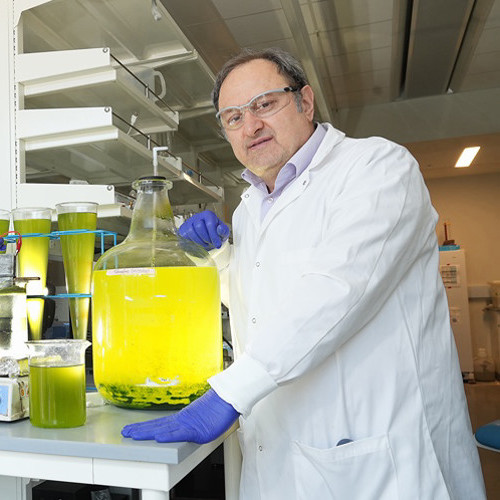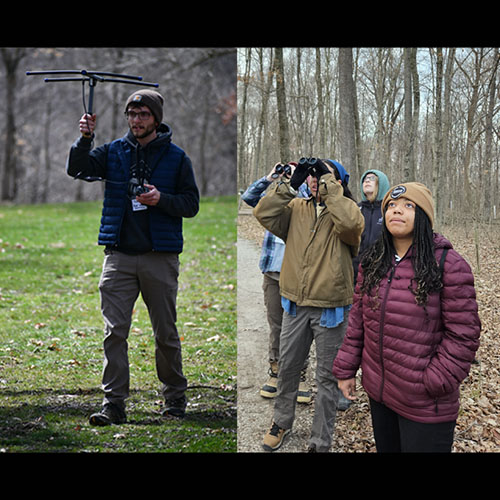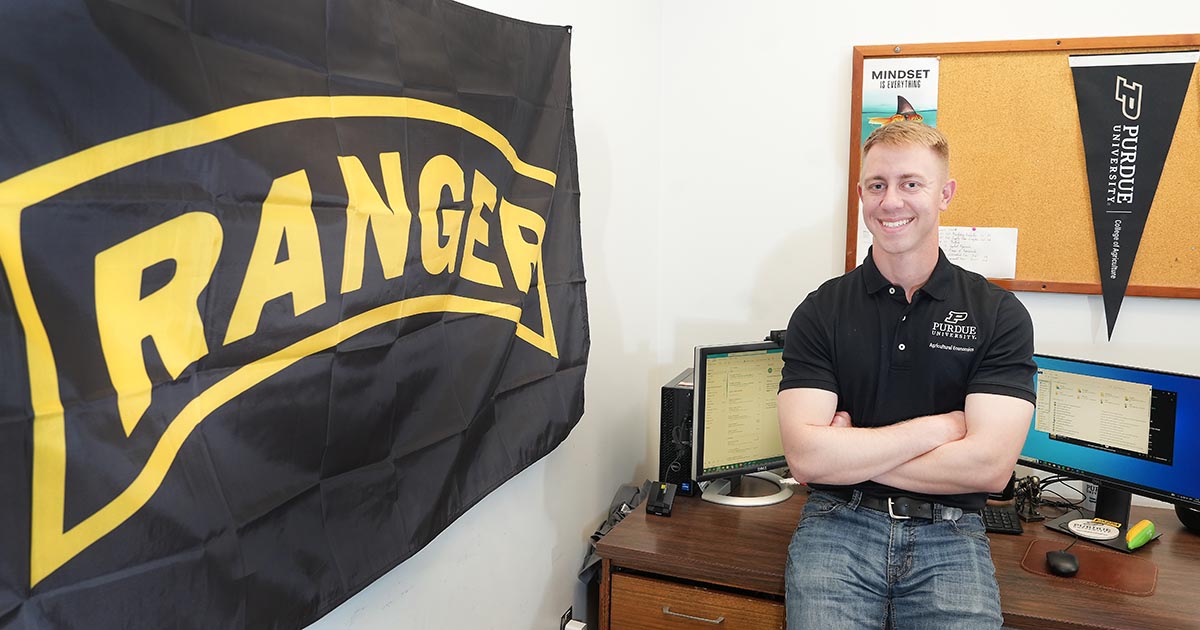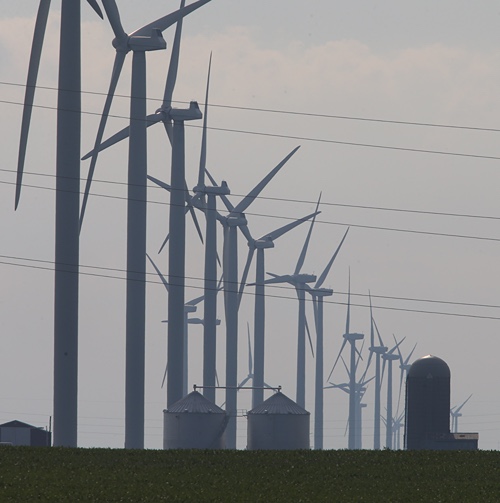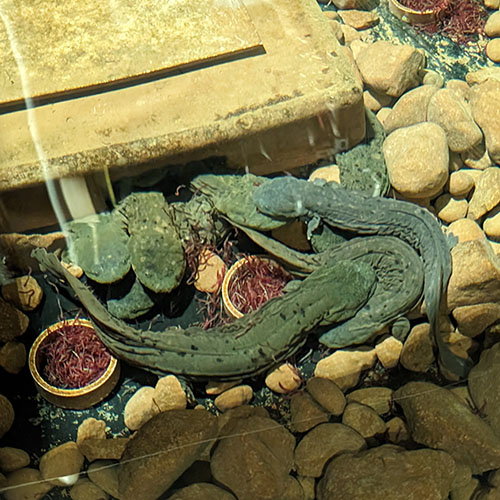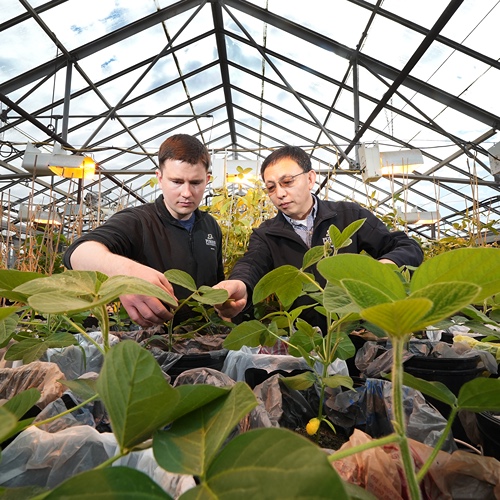Exams, papers, presentations – these are some of the most common assessments employed by professors. Sometimes, however, the best way to gauge understanding is through more interactive means, finding ways to simulate real-life challenges students could encounter in their post-graduate careers or studies.
Marisa Erasmus, assistant professor in animal sciences, put this concept to the test in her animal welfare course (ANSC 404) when she recently crafted a computer simulation in conjunction with Purdue’s Envision Center for Data Perceptualization. The simulation focuses on how to evaluate turkey welfare on two virtual poultry farms, one in Canada and one in the U.S.
In the simulation, students walk through the farms, evaluating different factors that contribute to turkey welfare, from the temperature in the facility to the actual birds themselves, taking note of things like feather damage. This semester the first students to participate in the simulation then wrote a report determining which facility had better overall conditions and justified their decision based on all the knowledge gained through the course. Erasmus required them to support their conclusions with no less than five paper citations.
“This simulation gives the students the opportunity to use everything they’ve learned this semester,” Erasmus explained. “I want to see them take in all the available data and filter it through the studies and theories they’ve encountered in this classroom and apply that knowledge in a realistic scenario.”
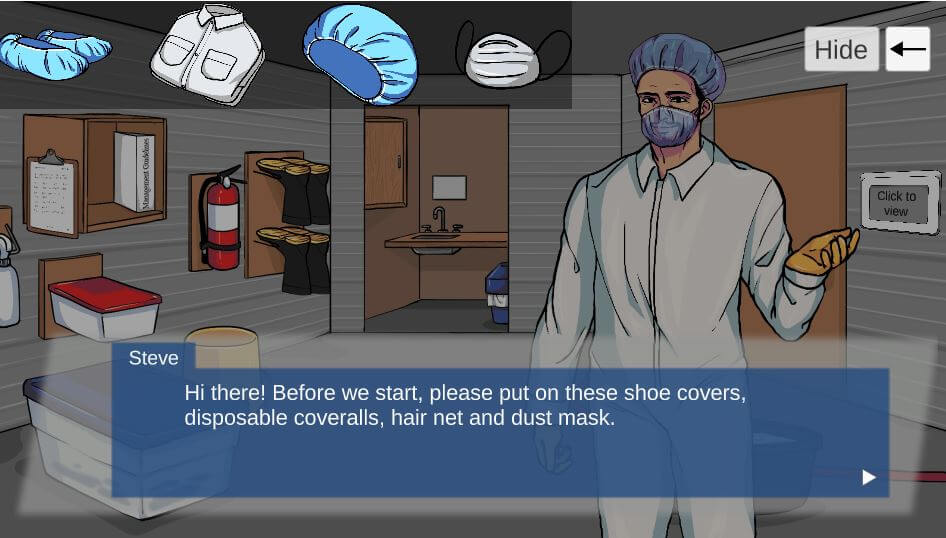
For biosecurity and practical reasons, students aren’t actually able to visit an operational turkey farm during class hours, but this gives them a taste of the evaluation process, Erasmus said. “I also asked them to make judgments based on science. Given the literature, how do students evaluate turkey welfare? Animal welfare encompasses animal behavior, animal health as well as animals’ states (feelings), but some people place more value on one than another. For example, is it more important that barns are kept at a comfortable temperature or that turkeys have a lot of space to roam around? They have to scientifically justify the weights they give to certain conditions,” Erasmus continued.
Students in the class responded positively to the simulation.
“This simulation allowed us to use critical thinking,” Makenna Lebo, a senior in animal sciences, said. “This was a great way to use the knowledge I’d gained rather than just demonstrating I’m able to memorize information.”
Danielle Marks, a second-year master’s student in animal sciences, seconded this opinion. Marks LAO has experience working with the Envision Center. She created a chicken digestion simulation game for elementary students to better understand the importance of animal nutrition. The game is part of her thesis work and is currently being piloted in classrooms around the state.
“Simulations are effective assessment methods because they force the application of multiple concepts and consideration for how those concepts interact,” Marks explained. “This method allows students to practice making important decisions that have consequences without actually putting animals and people at risk.”
